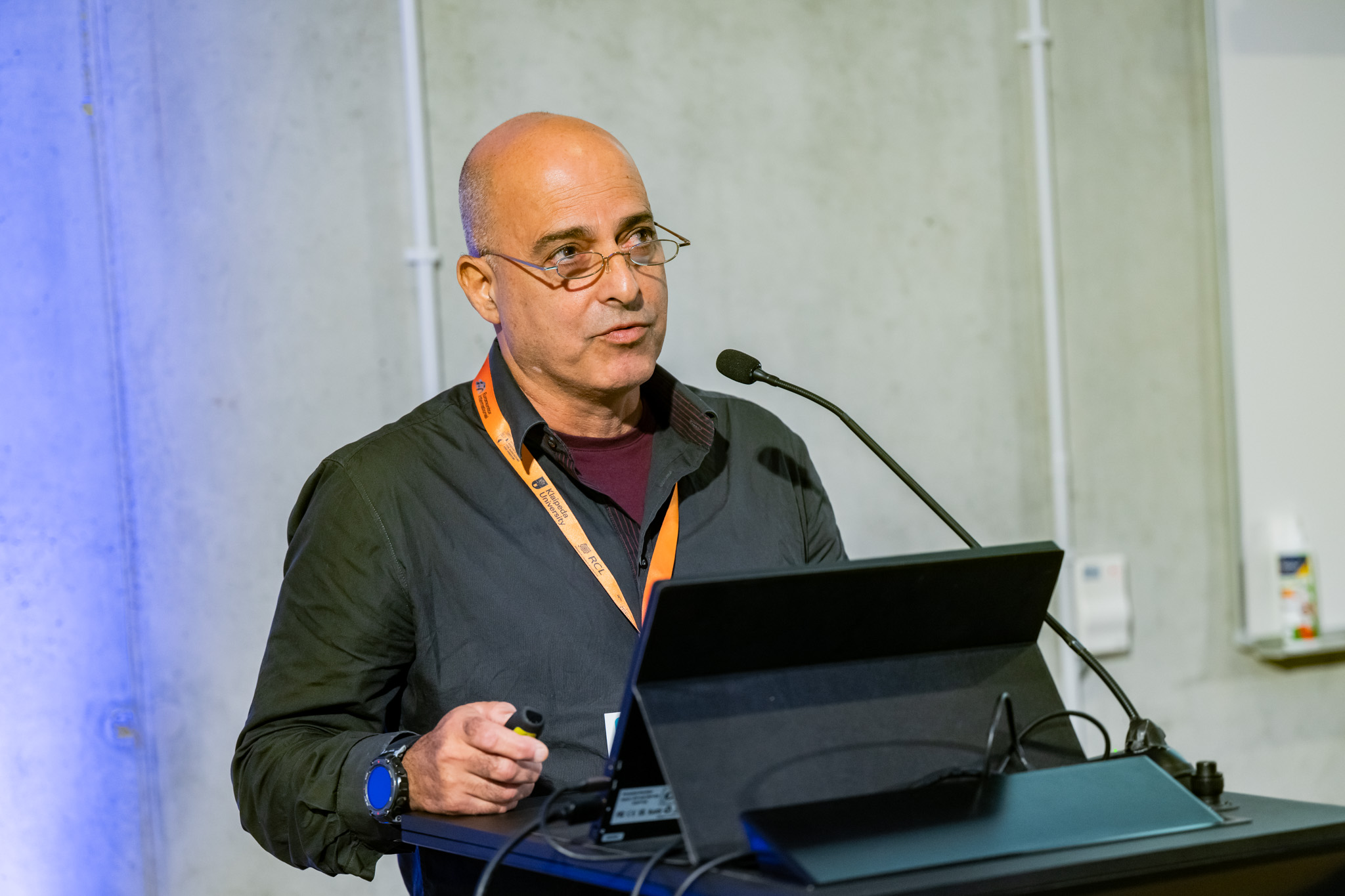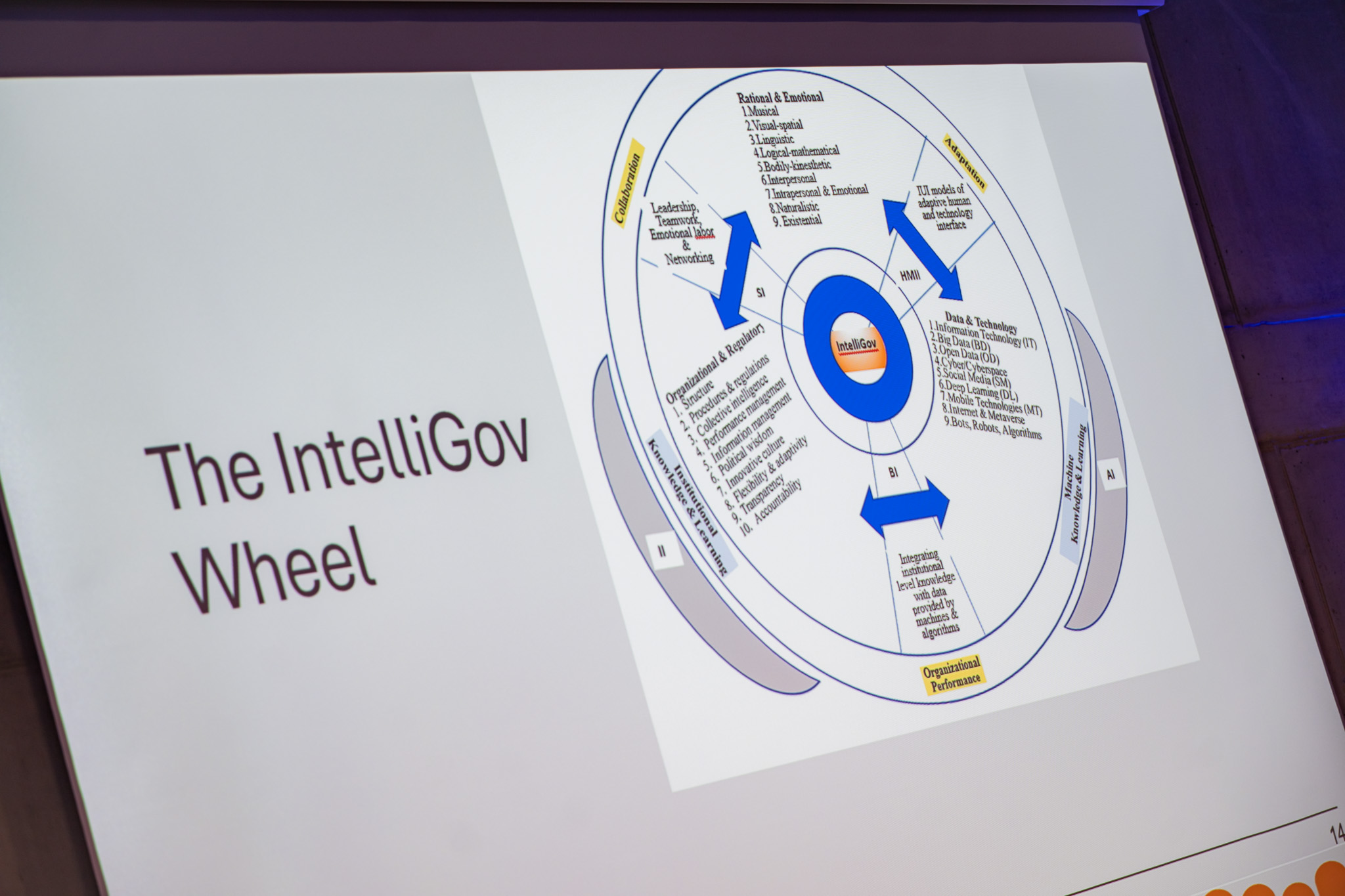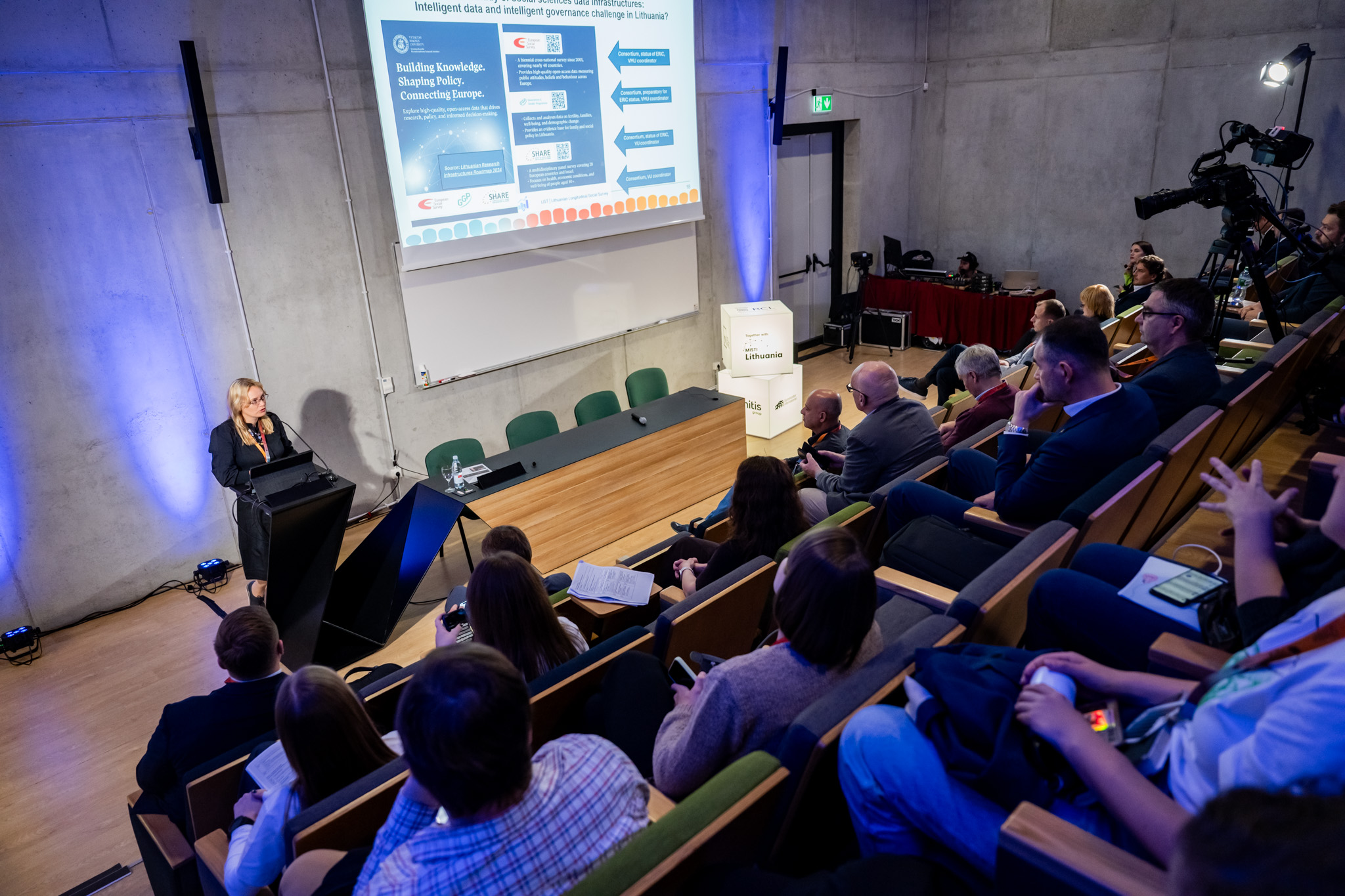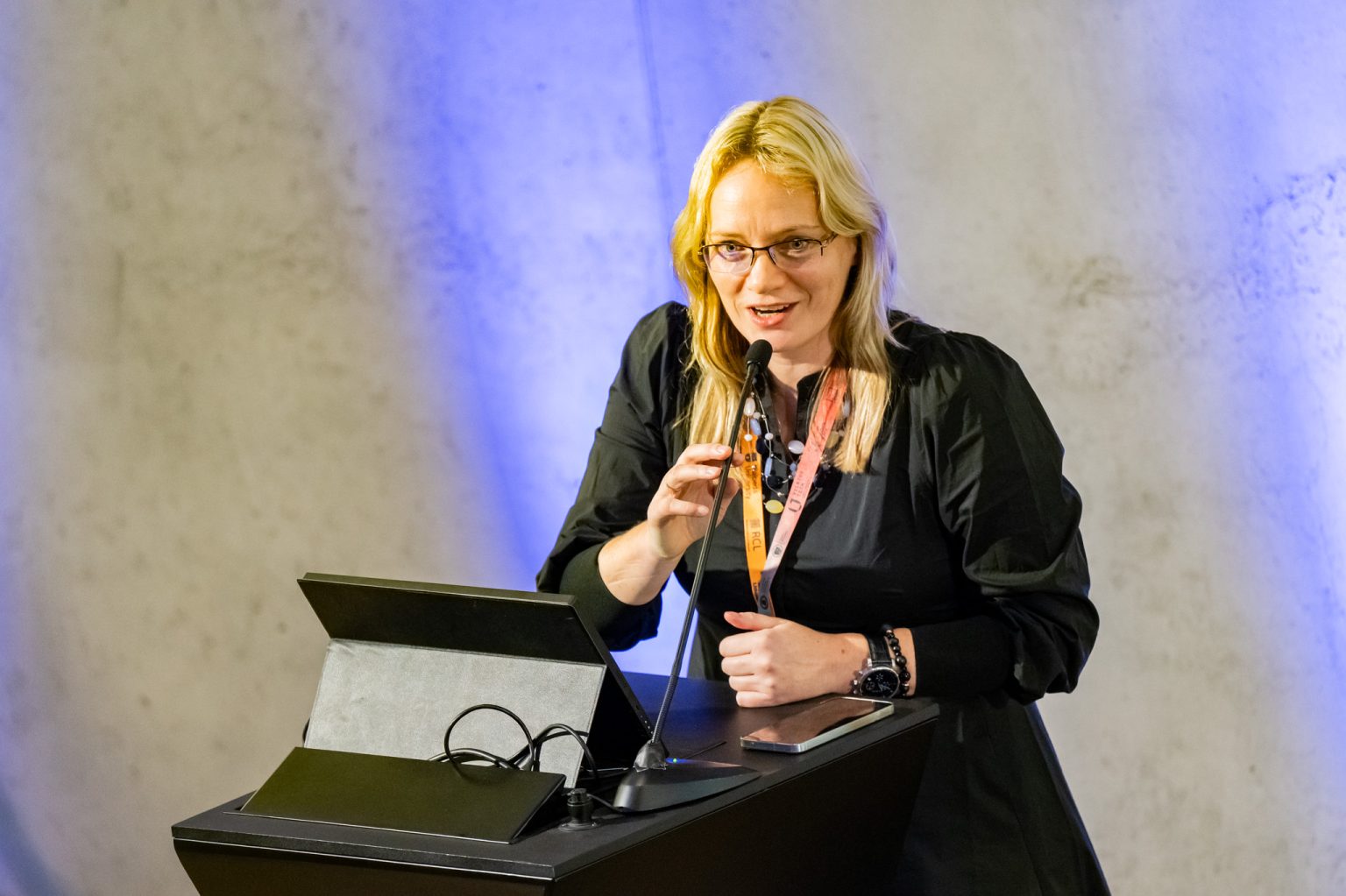‘We live in a world that is constantly experiencing multiple crises. Over the past decade, these crises have followed one after another, requiring flexible solutions that focus on current issues and needs and technological and other changes. This is precisely what smart governance is for: governance that involves communities and other stakeholders in decision-making and seeks expert knowledge through consultation and cooperation,” explains Jurga Bučaitė-Vilkė, Chair of the Department of Sociology at Vytautas Magnus University (VMU) and Director of VMU V. Kavolis Transdisciplinary Research Institute, who participated in the joint Lithuanian and Massachusetts Institute of Technology (MIT) scientific conference, “Human and More-Than-Human Futures: Innovating Technologies for Coexistence” in Vilnius and Kaunas.
The researcher notes that smart governance involves not only companies and institutions, but also ordinary citizens, as well as representatives from various fields and communities, and experts. This is particularly relevant today, given that data processing is increasingly reliant on technological solutions, artificial intelligence and algorithms. However, real-world solutions are needed that are both precise and sensitive to the environment.
“During a war, let’s say that intelligence data is used to decide where to launch an attack. Based on cold, hard calculations, the algorithm might suggest attacking units near a school. However, from a human perspective, it is unacceptable to bomb or shoot at schools. These are ethical dilemmas that are particularly relevant now in Ukraine, for example,” says Assoc. Prof. Dr. J. Bučaitė-Vilkė.
According to the political sociologist, various civic participation initiatives at the municipal level, such as participatory budgeting, can be considered a form of good governance. This is a decision-making process in which citizens and city residents propose ideas for the use of funds and contribute to governance through democratic voting. In Lithuania, participatory budgeting has become the norm over the past five years, being implemented in 52 out of 60 municipalities. In total, over the past seven years, residents have jointly decided on the use of around €20 million.

There Will be No Results Without Emotional and Cultural Sensitivity
Prof. Dr. E. Vigoda-Gadot, a visiting researcher at the V. Kavolis Transdisciplinary Research Institute at VMU and a professor at the University of Haifa (Israel), developed the concept of intelligent governance. According to Prof. Dr. Vigoda-Gadot, intelligent governance is the ability to integrate the knowledge and skills of different participants — people, organisations and machines — and transform them into decisions. While algorithms and data are essential, without emotional and cultural sensitivity they will not produce sustainable results. Without emotional and cultural sensitivity, algorithms and data will not produce sustainable results.
“Intelligent governance in cities enables citizens to access better services, and makes governance more accountable and transparent. It involves as many people as possible and aims to achieve as much as possible. It’s not just about elections either,” explains Prof. Dr. E. Vigoda-Gadot, citing Washington, South Korean and Chinese cities as examples of intelligent governance. She also highlights Helsinki, where the OmaStadi participatory budgeting initiative is in place, with the city allocating €10 million to implement residents’ proposals for the 2025–26 period.
International studies confirm that such initiatives are effective: when people feel that their voice has power, trust in the government increases significantly. According to a 2024 Organisation for Economic Co-operation and Development (OECD) survey, 69% of people who feel they influence government actions trust their national government, compared to just 22% of those who do not.

Overly “Intelligent” Government – a Threat to Democracy
However, Prof. Dr. E. Vigoda-Gadot also points out that such governance can be harmful to citizens. For example, if the government starts spying on people, tracking them and misusing their data.
“People often ask me, “Shouldn’t we be afraid of an ‘overly intelligent’ government?” Of course, they should be if it accumulates too much power and politicians, decision-makers and those in power have a lot of sensitive information at their disposal. This creates many legal and ethical dilemmas,’ says the Haifa University researcher, emphasising the importance of ensuring democracy, clear data management standards and accountability.”
‘The better we apply the principles of smart governance, the more we can increase political stability, trust and participation — the essential elements of democracy.’ However, safeguards are needed to prevent any single entity from amassing all the knowledge and power,” the professor concludes.

Inspiring Collaboration with MIT
Prof. Dr. E. Vigoda-Gadot and Assoc. Prof. J. Bučaite-Vilke presented a report on intelligent governance at a joint conference organised by Lithuania and MIT, entitled “Human and More-Than-Human Futures: Innovating Technologies for Coexistence”. The event, which took place in Vilnius and Kaunas, brought together experts from Lithuania and MIT to discuss artificial intelligence, climate change, defence strengthening and other topics. The conference was organised by a consortium of twelve major Lithuanian universities, research centres and companies, coordinated by VMU.
The conference followed the signing of an agreement earlier this year between MIT’s International Studies Centre and International Science and Technology Initiatives (MISTI) and Lithuanian science and business partners. This agreement is expected to foster closer cooperation with the prestigious US university, strengthen Lithuania’s visibility as a centre of innovation and technology, and create highly skilled jobs.
According to Prof. Dr. E. Vigoda-Gadot, cooperating with MIT should also help with researching smart governance. ‘It is important for us to draw inspiration and innovation in this area, such as how to integrate machines and technologies into governance at local or national levels by implementing better policies in areas such as healthcare, social welfare, security and education. “As a leading institution, MIT has the technological capabilities and knowledge to help us improve. This is a great initiative,” says the scientist.
Assoc. Prof. Dr. J. Bučaitė-Vilkė, interim director of the VMU V. Kavolis Interdisciplinary Research Institute, says that one of the initial plans for collaboration to further smart governance research is to establish links with the MIT Governance Lab (GOV/LAB). This laboratory conducts research on citizen engagement, accountability, and trust in government. The lab conducts research on topics such as these.
The conference, “Human and More Than Human Futures: Technological Innovations for Coexistence”, organised by the Lithuanian consortium, was supported by the Lithuanian Science Council and Northway Biotech.
The Lithuanian consortium’s members collaborating with MIT are: VMU (coordinator); Kaunas University of Technology; Klaipėda University; Vilnius University; Vilnius Gediminas Technical University; Vilnius Academy of Arts; Lithuanian Research Centre for Agriculture and Forestry; Lithuanian Energy Institute; Ignitis Group AB; LTG Group; Euromonitor International – Eastern Europe UAB; and Novian UAB.


